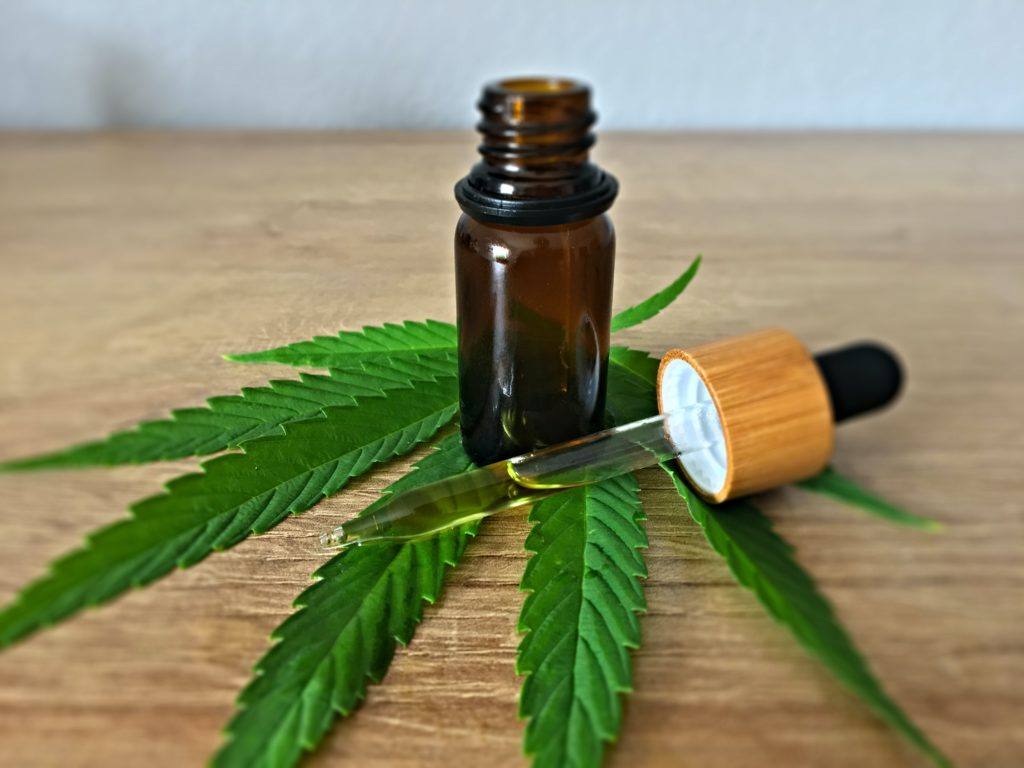Should I Buy CBD Oil For Pain?

The answer is “YES”, We can use CBD Oil for Pain, CBD is known for its pain-relieving properties.
What is Cannabidiol Oil or Cannabis Oil
Many common ailments can be treated with cannabidiol. In the cannabis plant, Cannabis sativa, CBD is one of more than 100 chemical compounds known as cannabinoids. Cannabis’ main psychoactive cannabinoid, tetrahydrocannabinol (THC), causes the feeling of getting high associated with cannabis consumption.CBD does not produce a psychoactive effect.
cannabis has been used as a medicine. Several ancient texts extolled the plant’s curative powers, leading to the development of tens of thousands of pharmaceuticals.
Those looking to relieve pain and other symptoms without the mind-altering effects of cannabis or other side effects associated with some pharmaceutical drugs will find CBD an appealing option. A carrier oil like coconut oil or hemp seed oil is used to dilute CBD oil, which is extracted from the cannabis plant. A variety of products contain CBD, such as dietary supplements, bath soaks, beverages, and foods.
Can I take CBD oil for pain relief?

Since it does not produce the same psychotropic effects as its cannabinoid sibling, tetrahydrocannabinol (THC), this natural compound from the Cannabis sativa plant will not get you high. However, many people are finding that it can complement their pain management plan. Most people who use CBD for a medical condition use it to treat chronic pain, arthritis, and joint pain, as well as anxiety. Clearly it is safe and effective to use CBD oil for pain.
In order to maintain homeostasis (a state of stable balance), our bodies naturally release endocannabinoids that bind to the cannabinoid receptors when they sense inflammation.
While CBD does not bind directly to receptors, it is thought to work by triggering other cannabinoid receptors. The effects of CBD on the central and peripheral nervous systems, as well as the immune system, are numerous. By interacting with our endocannabinoid system, it functions as an antioxidant, as a pain reliever, and as an analgesic. Aside from its minimal side effects, CBD has a low-risk, non-addiction profile. However, before you pop a gummy or ingest an oil, you should read this.
CBD Oil for pain relief in the UK
Those interested in trying hemp CBD oil products in the UK must determine if a company selling CBD oil meets the UK Food Standards Agency’s requirements, then only buy CBD oil in the UK Find products that have been rigorously tested through the Novel Foods Application or that are members of the Cannabis Trades Association. All CBD oil bottles are compliant with UK law and strictly tested. Depending on the strength, chronic pain may be alleviated at different levels. In this way, beginners can experiment with different potencies to find one that suits their needs, while more experienced users can opt for higher potencies.
Hemp Or CBD oil for pain
We should understand the difference between CBD oil and hemp seed oil.CBD and hemp oils are also made differently. In order to make hemp oil, hemp seeds are cold-pressed. A dark, thick oil is therefore produced that contains a high concentration of nutrients.
While CBD is extracted using various processes, including CO2 or ethanol, THC is extracted using other methods. After the extract is extracted, it is suspended in carrier oil. CBD oil contains all the compounds found in the plant, including terpenes, other cannabinoids, and flavonoids.
You need to understand the difference between CBD oil and hemp seed oil if you want to purchase CBD oil for pain. In spite of the fact that these two oils are commonly used interchangeably, they are very different. Despite being derived from parts of the hemp plant, both oils have very different chemical compositions and side effects. High-quality CBD oils are thoroughly tested for safety, potency, and efficacy.
How much CBD oil should I take for pain?
If you happen to have a pain reliever over-the-counter, just look at the label to find out how much you should take for your symptoms. However, finding the right dose of CBD oil for pain isn’t as straightforward as it seems.
In addition to its pain-relieving, anti-inflammatory and anti-anxiety properties, CBD is praised by enthusiasts for promoting sleep and reducing inflammation. As of yet, no definitive study has determined how much CBD a person needs in order to benefit from it. Alternatively, find a local expert if you cannot get a referral from your rheumatologist or primary care provider. Unless your doctor prescribes a higher dosage, it’s best, to begin with, a lower one and gradually increase it.
The efficacy of CBD as an analgesic, or painkiller in particular, has been investigated by scientists during the past two decades-and so far, the results have been promising. We know so far about the benefits of CBD oil for pain , even though research is ongoing.
The CBD Oil for pain
Now we know that CBD oil can be used as an effective painkiller for numerous chronic conditions. Let’s dig into when to use CBD oil for pain-
CBD oil for inflammatory pain
CBD is one of the most active compounds in Cannabis sativa L. Though CBD is non-psychoactive, it exerts a number of beneficial pharmacological effects, such as anti-inflammatory and antioxidant properties. CBD’s chemistry and pharmacology, as well as its interaction with multiple molecular targets, such as cannabinoid receptors and other components of the endocannabinoid system, have been extensively studied.
In addition, preclinical and clinical studies have contributed to our understanding of the therapeutic potential of CBD for many diseases, including diseases associated with oxidative stress. A review of the main biological effects of CBD, and its synthetic derivatives, is presented here, focusing on the anti-inflammatory, antioxidant, and cellular effects of CBD.
CBD oil for back pain
Despite the fact that back pain can affect people of all ages and genders, treatment options can be limited. Alternative pain management options such as cannabis-derived cannabidiol (CBD) are becoming more popular. It is possible for a person to suffer from acute or chronic back pain which lasts for weeks or months.
It is common for people to describe back pain according to its location and cause. In this way, a person can identify underlying conditions that may be causing or contributing to their back pain and work with their doctor to find the best treatment. There is no cure for acute back pain, but it usually goes away after a few days.
CBD oil for joint pain
There is a cell-signalling system in everyone called the endocannabinoid system (ECS). Several researchers believe CBD affects your immune system by affecting ECS receptors.
Your cells respond to chemical signals through ECS receptors, which reduce swelling and pain by reducing inflammation. It is through this process that CBD products, such as CBD oil, may be able to help you manage acute or chronic joint pain.
There are a whole bunch of naturally occurring chemicals in cannabis plants called cannabinoids. Recently, hemp-derived cannabidiol (CBD) has gained popularity in the wellness world, and it’s no wonder. There are, however, differences between CBD and tetrahydrocannabinol (THC). Unlike cannabis, it is much less likely to produce a “high” feeling.
Some people benefit from using CBD products, such as CBD oil for pain, for managing chronic joint pain. In some cases, it might be an effective alternative to opioids or immunosuppressants when it comes to managing pain.
CBD oil for nerve pain
Sensory nerves contain receptors, which send sensations to the brain, so your endocannabinoid system may play a role in pain modulation.
Under the tongue, place one to three drops and let them sit for a couple of minutes before swallowing. People love (I do!) and dislike their earthy, spicy, and citrusy taste. Having tasted many different CBD oil for pain, I find ours to be a much more interesting taste and less offensive. It is common for low grade products to have an unpleasant aftertaste or taste rancid.
Pain caused by nerves, or neuropathy, is a different matter. Pain caused by nerve damage is known as neuropathic pain. The pain may occur throughout the body or in specific areas, such as the arms or hands. It is usually a chronic nature and may get worse over time. You may experience nerve pain if you have certain medical conditions, such as diabetes.
The potential benefits of CBD for nerve pain – There is a lack of research on CBD in neuropathy. CBD seems to be able to relieve neuropathy pain, however. It may be an acceptable alternative to other potential pain relievers, like opioids because CBD has relatively mild side effects.
CBD oil for muscle pain
CBD oil works well for muscle soreness and pain. The CBD in the hemp plant is the main natural ingredient, an all-natural solution that is increasingly recognised for its effectiveness in active recovery after physical stress. In contrast to THC, CBD does not have psychoactive properties – meaning you won’t feel high from it.
According to recent scientific research, CBD has anti-inflammatory and pain-relieving properties. CBD’s unique properties make it an effective recovery and relaxation aid for athletes. Athletes of all levels can benefit from the therapeutic benefits of CBD, as it interacts with receptors in the body and brain that help regulate processes such as pain, inflammation, appetite, mood, and circadian rhythms.
CBD oil for sciatica pain
There are large and sensitive areas in the lower back that can release pain signals to the brain when pushed too hard, including the sciatic nerve.
There are many causes of sciatic pain, including herniated discs and bone spurs. Sciatica symptoms can worsen due to factors such as advanced age, physical inactivity, obesity, and diabetes.
Both beginners and experienced users alike prefer CBD oil for pain. CBD is applied sublingually (under the tongue); squeeze the product’s dropper and place a few drops under the tongue. After holding it for 60 seconds, swallow it. It will absorb through the tiny blood vessels in your mouth, ensuring relatively fast effects and a long duration of up to 6 hours.